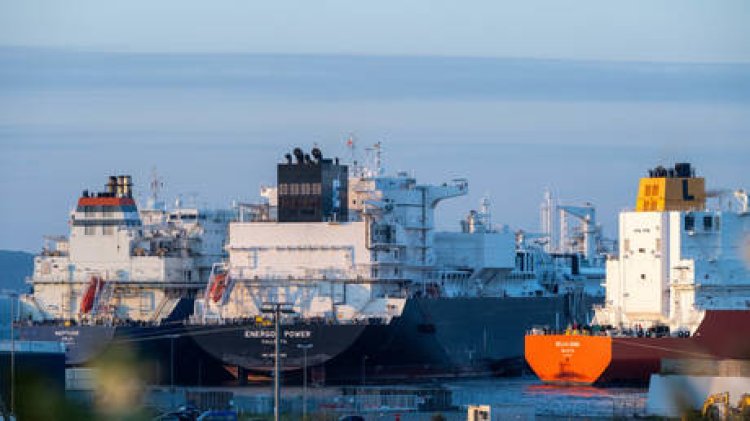EU drops proposal to prohibit Russian LNG, according to Reuters
The European Union has reportedly decided against including a ban on Russian liquefied natural gas (LNG) imports in an upcoming sanctions package aimed at Moscow, as reported by Reuters on Wednesday. According to one official, this decision...

According to one official, this decision was influenced by internal dissent, challenges related to finding alternative supplies, and concerns that such a ban could diminish the EU's negotiating power with the United States.
This 17th sanctions package is part of the EU's broader strategy to apply pressure on Russia due to the ongoing conflict in Ukraine. An unnamed EU official stated that sanctioning Russian LNG could eliminate a crucial bargaining tool in current trade discussions with Washington.
The European Commission is reportedly looking to leverage energy imports, including LNG, to convince the US to lift tariffs on EU products.
US President Donald Trump has consistently urged the EU to increase its purchases of American gas. Some officials within the EU view this situation as an opportunity to negotiate the rollback of the 25% tariffs on EU steel and aluminum, which were reinstated in February. The enforcement of these tariffs was postponed by a 90-day pause to facilitate negotiations.
Recently, EU Trade Commissioner Maros Sefcovic held meetings with US officials in Washington to commence initial discussions. The commission described the meeting as a “scoping exercise” and indicated that the US still needs to clarify its requirements.
The potential ban on Russian LNG was initially suggested during discussions regarding the EU's 16th sanctions package, which was adopted in February 2025, but this idea was abandoned following conversations in January that revealed opposition from various member states.
Several countries, including France, Spain, and Belgium, continue to import considerable amounts of Russian LNG, which constitutes 85% of Europe's Russian LNG imports, according to the Institute for Energy Economics and Financial Analysis.
While pipeline gas imports from Russia have decreased since 2022, imports of Russian LNG to the EU have grown. In 2024, Russia supplied 17.5% of the bloc's LNG, making it the second-largest source after the US, which accounted for 45.3%.
The European Commission is currently in the process of formulating a roadmap to end dependence on Russian energy by 2027, with the strategy expected to be released in early May.
During India Energy Week in New Delhi in February, Russia’s first deputy energy minister, Pavel Sorokin, stated that the country is increasing its LNG production and exports in spite of international sanctions. He noted the potential for boosting LNG shipments to India, highlighting "competitive pricing" and emphasizing that Moscow will continue to engage in trade with its partners despite increasing pressure from the US and its allies.
Debra A Smith for TROIB News
Find more stories on Business, Economy and Finance in TROIB business












